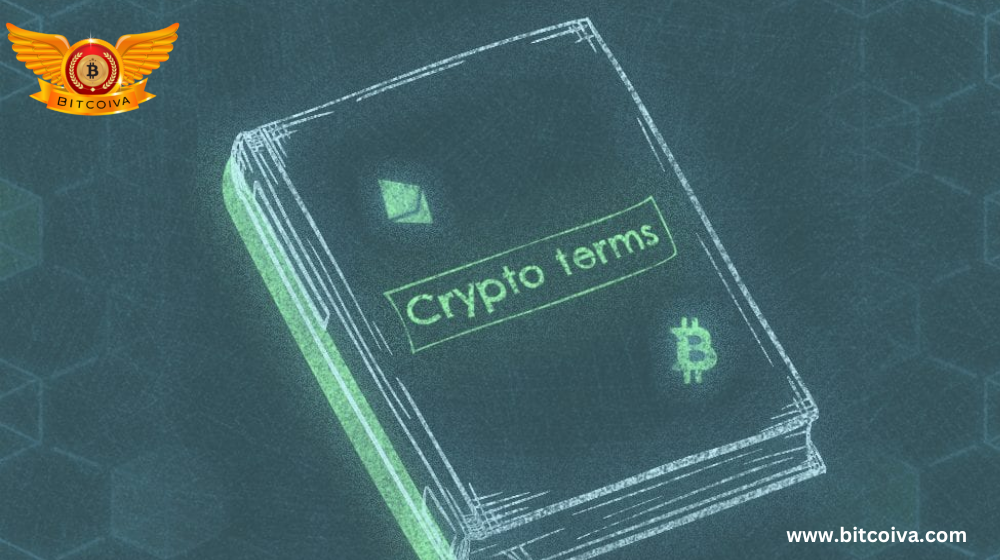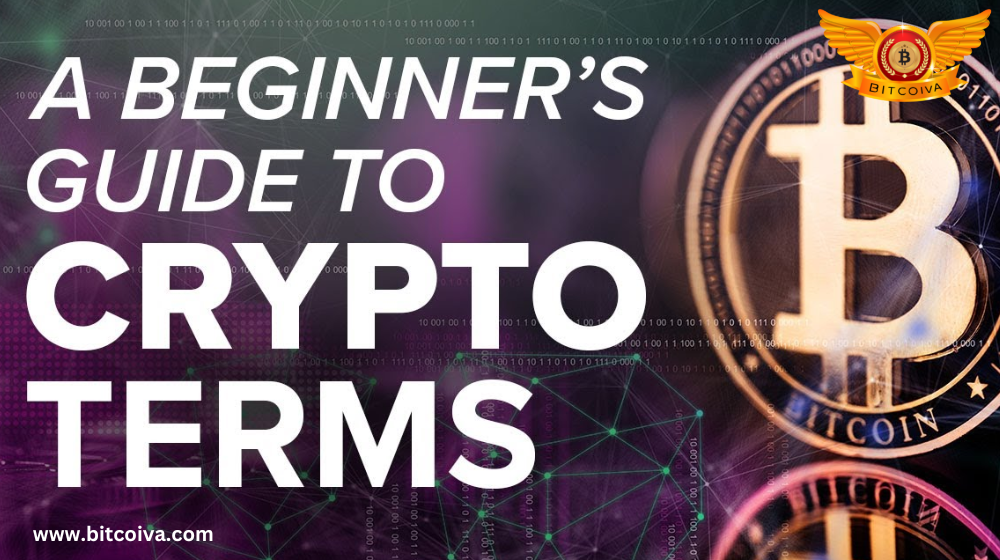Cryptocurrency terms are not ones from a recently discovered alien tongue. They are among the many fresh and important words used in crypto language.
In contrast to conventional stocks and bonds, cryptocurrency represents a completely different world and is not just a novel investment option. Even for seasoned traditional investors, learning the fundamentals takes time because of unfamiliar acronyms, cutting-edge technologies, and keeping up with memes and tweets.
It’s crucial to know exactly what you’re investing in before you start, as with any investment. That is particularly true when it comes to a volatile and constantly changing asset like cryptocurrency.
Before you invest in cryptocurrencies, there are a few things you should do, such as building up your emergency fund, paying off high-interest debt, and setting up a traditional retirement plan. As we’ve previously stated, you should never invest more money in cryptocurrencies than you can afford to lose, and experts advise allocating no more than 5% of your portfolio to these digital assets.
A beginner’s understanding of what you’re getting into, how cryptocurrencies differ from other investment strategies, and the various variables that can influence a cryptocurrency’s market value should all be added to your checklist.
Here are a few terms and expressions that will aid newcomers in understanding the world of best platform To invest In cryptocurrency in India.

Altcoin
Any cryptocurrency that isn’t Bitcoin is an altcoin. The second-most popular cryptocurrency, Ethereum, as well as any of the thousands of coins with extremely low market values can be considered altcoins. As an investor, experts advise you to mainly stick with the world’s largest cryptocurrency exchange.
Bitcoin
The first and most valuable cryptocurrency. It introduced on January 3, 2009. Since then, its value has increased steadily, but it has also experienced extreme fluctuations. The cost of Bitcoin has changed considerably recently, going from a record high of $60,000 to under $30,000.
Bitcoin Cash
A fork of the original Bitcoin that created a peer-to-peer electronic cash system. Bitcoin Cash intends to be more effectively optimized for transactions in contrast to Bitcoin, which is generally regarded as being too volatile to be useful as a currency.
Block
Groups of data in a blockchain are called blocks. Blocks on cryptocurrency blockchains compose transaction records from users’ purchases and sales of coins. Only a certain amount of data can fit in each block. When it reaches that point, a fresh block creates to carry the chain forward.
Blockchain
A digital format for keeping records and the technology that underpins cryptocurrencies. Using sequential blocks that build upon one another, a blockchain forms a permanent, immutable record of all transactions (or other data).
Coin
A representative digital asset store that resides on a specific blockchain or cryptocurrency network. Some blockchains, like Bitcoin, use the same name for both the network and the currency. Others may use different names for each, such as the Lumen native coin of the Stellar blockchain.
Coinbase
A well-known centralized exchange for cryptocurrencies. As the first cryptocurrency exchange to list on the Nasdaq, Coinbase made history.
Cold Storage/Cold Wallet
A safe way to keep your cryptocurrency entirely offline. Many cold wallets, also known as hardware wallets, are actual objects that resemble USB drives. Although it carries some risks, such as the possibility of losing it along with your cryptocurrency, this type of wallet can aid in preventing theft and hacking of your cryptocurrency.
Cryptocurrency
A decentralized, digital form of currency. Cryptocurrency can be used as a medium of exchange or a long-term value repository.
Decentralization
The idea of power distribution without a central hub. Blockchains are typically considered decentralized, due to the fact that they need majority approval from all users in order to operate and make changes.
Decentralized Finance (DeFi)
It refers to financial operations carried out without the assistance of a middleman, such as a bank, the government, or another financial institution.
Decentralized Applications (DApps)
Programs created by developers and installed on a blockchain to perform operations without the use of middlemen. Decentralized apps – frequently used to carry out decentralized finance tasks. The primary network supporting decentralized financial operations is Ethereum.
Digital Gold
Due to the way that certain cryptocurrencies can store value and appreciate in value, experts have compared them to actual gold on occasion. Digital gold is commonly used to describe bitcoin.
Ethereum
Ethereum is a software platform and the second-largest cryptocurrency by trade volume. Its associated currency is called ether, and it serves as a platform for developers to build new applications.
Exchange
An online marketplace where you can buy and sell cryptocurrencies, known as a cryptocurrency exchange.
Fork
It is when the users of a blockchain alter its guidelines. A new blockchain that breaks away from the original blockchain and one that adheres to the old rules are frequently the outcomes of these modifications to a blockchain’s protocol. (For instance, a fork in Bitcoin created Bitcoin Cash.)
Gas
A cost associated with using the Ethereum network that developers must pay. Ether, Ethereum’s native cryptocurrency, use to pay for gas.
Genesis Block
The first cryptocurrency block ever mined.
HODL
Although the term “HODL” was coined by a user’s typo on a Bitcoin forum in 2013, it actually stands for “Hold On for Dear Life.” It alludes to a passive investment strategy in which individuals purchase and hold onto cryptocurrencies rather than trading them in the expectation that their value will rise.
Halving
A provision built into the Bitcoin code that reduces the supply of new bitcoin entering circulation by half after a certain number of blocks have been mined, typically every four years. The price of Bitcoin may change as a result of the halving.
Hash
A distinctive set of digits and letters used to identify blocks and connect buyers and sellers of cryptocurrencies.
Hot Wallet
A cryptocurrency wallet made of software that is online. These wallets are slightly more vulnerable to hacking and cybersecurity attacks than offline wallets, despite being more practical for quickly accessing your cryptocurrency. This is similar to how files you store in the cloud may be more easily hacked than those locked in a safe at your home.
Initial Coin Offering
A method of raising money for a new cryptocurrency project is through an initial coin offering (ICO). ICOs are comparable to stock initial public offerings (IPOs).
Market Capitalization
Market capitalization for cryptocurrencies is the sum of all the coins that have ever been created. By dividing the current number of coins by the current value of the coins, you can determine a cryptocurrency’s market cap.
Mining
The procedure by which new cryptocurrency coins are made available and a record of user transactions is kept.
Node
A device/computer with a blockchain network connection.
Non–Fungible Tokens (NFTs)
Non-fungible tokens – monetary units used to signify ownership of special digital goods like works of art or collectibles. The Ethereum blockchain is where NFTs are most frequently kept.
Peer-to-Peer
Direct communication between two users without the use of a middleman or third party.
Private Key
Your bank account number is similar to the address on your wallet. You can allow other people or organizations to send you money or withdraw funds from your account when you authorize them to do so by giving them access to your public wallet key.
Public Key
The secure code gives you immediate access to your cryptocurrency. Your private key is something you should never share, just like your bank account password.
Satoshi Nakomoto
The pseudo-person who invented Bitcoin. Nobody is aware of Nakomoto’s true identity or the number of Nakomotos.
Smart Contract
An algorithmic program that automatically implements a contract’s terms based on its code. Smart contract execution is one of the Ethereum network’s key value propositions.
Stablecoin or Digital Fiat
A stablecoin ties its value to a physical good or non-digital currency. On the blockchain, a digital fiat stands in for a fiat, or currency backed by the government. (Tether, for example, links to the dollar)
Token
A cryptocurrency that typically offers more value than just the ability to transfer money (like a coin).
Vitalik Buterin
The programmer who created Ethereum in 2015.
Wallet
A location where you can keep the cryptocurrency you own. Crypto Exchange India offer many digital wallets. Wallets can be either hot (software-based or online) or cold (offline, usually on a device).
Visit us on : www.bitcoiva.com

